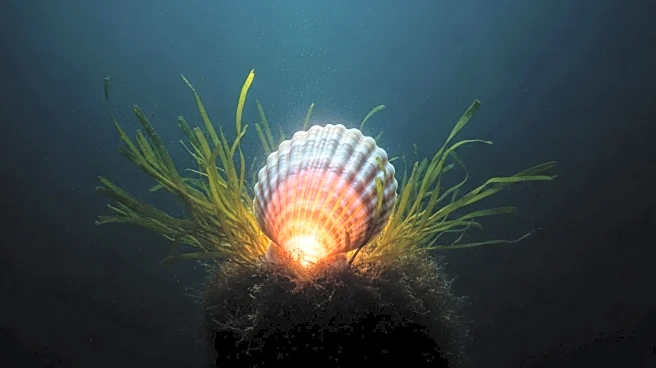What's Happening?
A new species of mollusk, Bathylepeta wadatsumi, has been discovered approximately 300 miles southeast of Tokyo at a depth of about 19,430 feet. This limpet, characterized by its thin, bluish shell, was found on a volcanic rock ledge by a crewed submersible. The discovery adds a new branch to the tree of life, as this species belongs to a group of true limpets typically found in shallow tide pools. The mollusk's shell is notable for its size and unique coloration, and it was collected as a holotype for further study. This finding challenges previous assumptions about the abyssal plain, suggesting that rocky patches are more common and host distinct communities.
Why It's Important?
The discovery of Bathylepeta wadatsumi is significant as it highlights the biodiversity present in deep-sea environments, which are often underexplored. This species extends the known depth limit for its group, indicating that similar habitats may host other undiscovered species. The finding underscores the importance of using submersibles for direct observation and collection, which can reveal species that traditional methods might miss. This discovery could lead to a better understanding of deep-sea ecosystems and the evolutionary history of marine life.
What's Next?
Further exploration of similar rocky outcrops in the deep ocean could reveal more individuals or even new species. Continued research and collection efforts are necessary to map the distribution and ecological roles of such species. The use of advanced technology in marine exploration will likely play a crucial role in uncovering the mysteries of the deep sea.
Beyond the Headlines
This discovery raises questions about the adaptability and evolution of marine species in extreme environments. It also highlights the need for conservation efforts to protect these unique ecosystems from human activities such as deep-sea mining. Understanding the biodiversity of the deep sea is crucial for assessing the impacts of climate change and other environmental pressures.










